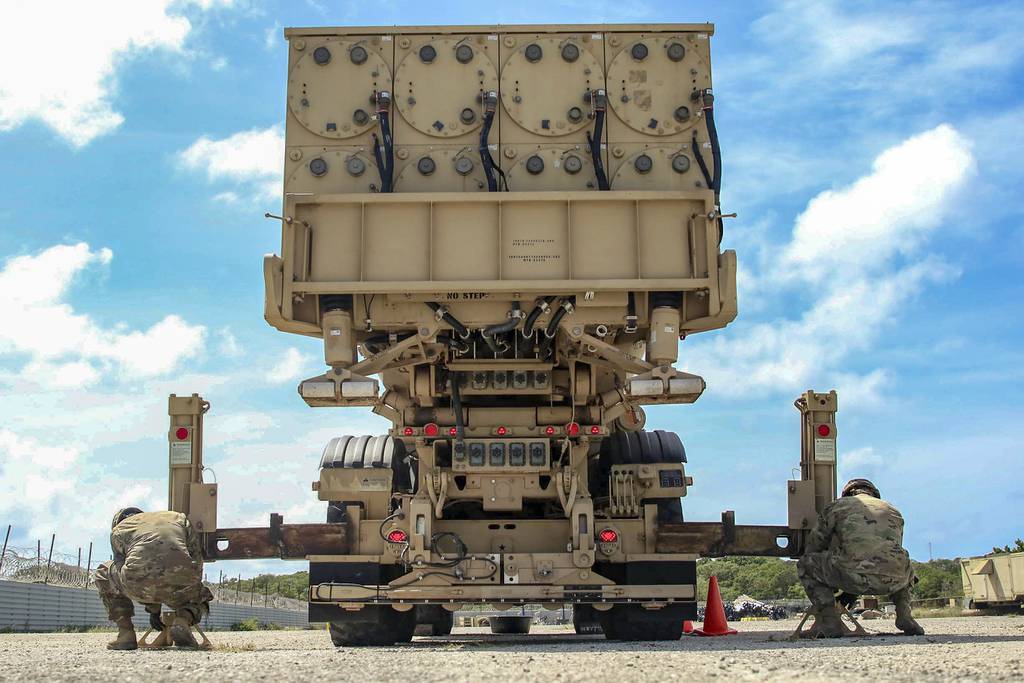
HUNTSVILLE, Ala. — The U.S. Army’s Rapid Capabilities and Critical Technologies Office is standing up a joint team to execute the Pentagon’s vision for an air and missile defense architecture for Guam, its director told Defense News.
Under Secretary of Defense for Acquisition and Sustainment Bill LaPlante signed a memorandum establishing the Guam Defense Systems Joint Project Executive Office, which RCCTO will manage, Lt. Gen. Robert Rasch, said in a March 27 interview at the Association of the U.S. Army’s Global Force Symposium in Huntsville, Ala. It will consist of members from all of the services, he noted.
The office is already forming and fiscal 2024 money is being realigned to get it started, he said.
The Army last year was assigned to lead the acquisition and execution plan for the Guam architecture and the new office within RCCTO will focus on bringing the technology together to create a joint integrated air and missile defense fires capability to protect the strategic Pacific island.
“As we start bringing to bear defense of Guam Army systems, Navy systems and MDA systems, that sensing layer is going to thicken,” he explained. “And we think we have a lot to learn on how to assimilate or fuse that information from air defense perspective and that’s a really hard domain to get right. So if we can get it right there, [we] think that will scale very quickly to the other domains that don’t quite have the same latency [or] time requirements on it for them to execute their mission.”
Pentagon leaders, focused on China as a growing threat, say 2024 will be a key year for the Army to bolster defense around Guam. During this year, the service plans to have in place a foundational capability to help stave off a potential attack.
The Missile Defense Agency and the Army sought a combined $1.5 billion in FY24 budget to begin preparing the island by moving assets into place and integrating capabilities. The effort is a test for the Army, which decision-makers have at times overlooked amid the focus on air and naval power in the Indo-Pacific region.
Success in Guam could help cement the Army’s air and missile defense role in the region. The first wave of defenses will include radars, launchers, interceptors, and a command-and-control system.
The Army requested $638 million for FY24 for three Lower Tier Air and Missile Defense Sensors, multiple Patriot air defense systems, and an assortment of Mid-Range Capability missile launchers and Indirect Fire Protection Capability launchers. Additionally, the service plans to use the Northrop Grumman-made Integrated Battle Command System to connect the right sensors to the right shooters on the battlefield.
The Navy will provide technology and capability from its Aegis weapon system; the service holds jurisdiction over the sites where it will place the technology.
Additionally, FY24 funding requests are meant to cover the installation along the island’s periphery of four high-end, solid-state, mobile AN/TPY-6 radars, which are new sensors that use technology from the Long Range Discrimination Radar in Clear Space Force Base, Alaska.
“It’s the synchronizing of all of that at one point in time, or to arrive at one point in time, on Guam so you actually have a capability – not just delivering a radar to a location where there’s no power, there’s no place to put it, or we don’t have any maintenance setup for it,” Rasch said. “So a lot of our efforts, other than building this integrated layered capability, is making sure that all of the pieces and parts make a capability, not just a material thing.”
Author: Jen Judson
Source: DefenseNews



